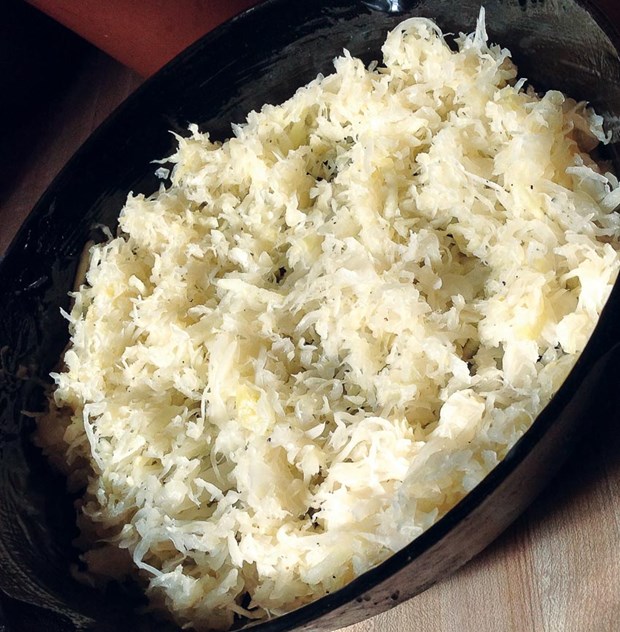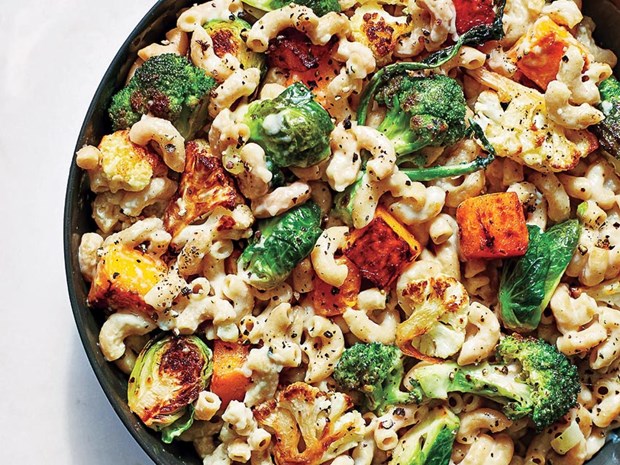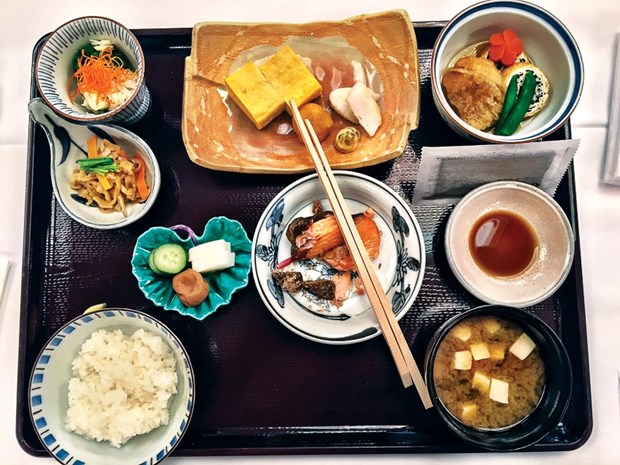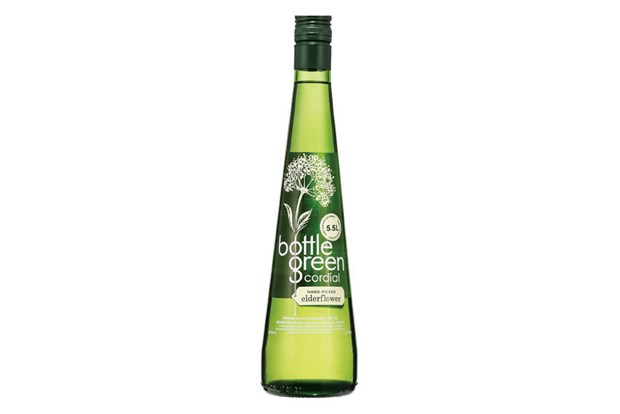These
are some main trends:
The four K: kimchee,
kraut, kefir, and kombucha
Stated
by a daily newspaper The Guardian (Britain), the four K did not surprise anyone
since fermented food like kimchee, kafir, kraut, and kombucha have been served
in households for years but recently, the needs for them dramatically increase.
Terms like “good for the gut” and “bacterial systems” were officially used in
world languages. Become new trends also means those food’s prices will go up in
store. However, we all can make them at home with a right recipe.
Let’s
start with kimchee, one of the most popular traditional pickles in Korea.
Kimchee is made from fermented vegetables, mainly nappa and cabbage. In Korea,
hot and sour kimchee is served in most of meals and it is also powerful
ingredients for other dishes.
Kraut
(or sauerkraut in the US) is Germany style sour cabbage. It is made from
fermented sliced cabbage with lactic acid bacteria like pickles. Indeed, Kraut
was originated from China then it became a featured Germany dish before going
to the America with migrants. Not only in German, Kraut also appears in all
over eastern and central Europe. It is usually served with sausages and salted
boneless trotters – another signature food of German.

Sour cabbage or Kraut, a Germany traditional dish.
Kefir
is a type of sour milk, originated from the North Kavkaz mountains in Russia,
and it has been used for hundred years. Usually, kefir is made from cow milk
but goat, lamp, or buff milk is good, too. Kefir has a thick texture as
smoothie and a sour taste. Kefir is highly rich in enzymes and useful bacteria,
which can balance digestive system; it also contains much more nutrition than
yogurt.
Kombucha
is fermented tea, which has been used for thousand years in China then in
Russia, India, Japan, and worldwide. Kombucha is made from green tea, black
tea, or white tea, fermented by sugar and the symbiosis of fungi, bacteria and
yeast in at least one week. This is an extremely healthy drink, which can
support both digestive and immune systems with its enzymes, amino acids,
antioxidants, and polyphenol.
Mushrooms and
functional mushrooms
The
Guardian once stated, “The Aztecs and ancient Egyptians honored Reishi (or
Lingzhi) mushroom as an immortal mushroom. The Chinese have used this mushroom
in medical field for thousand years ago and recently, according to a research
from the US, having 5 ears of any edible mushrooms can prevent cancers,
Alzheimer, and cardiovascular problems. However, the research has not been
known, not in Britain though. Their botanical nature helps our body to
dramatically improve the ability of adapting stress. "
Besides
familiar mushroom used as daily food, the world has been observing the blast
out of functional mushrooms, including Lingzhi, Chaga (a mushroom only found on
birch trees in cold zones as north Canada, Alaska - US, or Siberia - Russia),
and caterpillar fungus (Cordyceps
sinensis). People have produced those functional mushrooms into tea,
coffee, bottled water, and smoothie in many countries. Furthermore, they have
been used in beauty caring fields as shampoo and soaps.
Meatless meals
The
website called Treehugger advocated vegetarianism since it is not only a
healthy lifestyle but it also conforms to ethical standards (no killing) and
contributes to protect our ecological
environment. The trend is leading to the blooming of veggie restaurants,
bistros, and super market. Besides tofu – the main ingredient of vegetarians,
recently tempeh has become more popular.

Meatless meal: vegetables, cheese, and macaroni.
Traditionally,
tempeh is from Java Island (Indonesia). Tempeh provides alternative proteins
instead of meat or fish. Tempeh is made from soybeans like tofu but because
they use whole soybeans. Therefore, the texture, flavor, and nutrition contains
of tempeh is higher and richer than normal tofu. Especially, the longer it is
kept, the firmer and smoother it is. To replace white and red meat, people also
use wheat gluten, young jackfruit, frozen cheese, and numbers of vegetables.
Japanese style
breakfasts
As
food magazine Bon Appetite forecasted, Japanese style breakfasts will be spread
out all over the world since they have the harmony of different lifestyles,
from pancakes and syrup of the Europeans, eggs and sausages of the Americans to
toasts and avocado sauce of the Mexicans, and other types.

A Japanese style breakfast.
Mr.
Andrew Knowlton, editor assistant of Bon Appetite, said that he was satisfied
with his daily Japanese style breakfasts with eggs, ramen, kimchee, scallion,
and soy sauce. A breakfast is not enough without a small bowl of miso soup and
a piece of grilled fish. “All just bring you happy and vibrant feelings”.
Flowers’ fragrance
For
years, gardeners and cook leaders already knew about edible flowers. Recently,
the inspiration from flowers, flowers’ fragrance though, strongly grows.
Flowers’ petals are not only used in food but also drinks and snacks like
soaking flowers’ petals in liquid before serving and drying petals to mix with
snacks. There are some familiar flowers that are already in the list of tea,
such as lavenders and roses; now we have hibiscus tea with a gorgeous red
liquid and super healthy. Numbers of cocktails and foamed drinks are made with
elderflowers, which is much better for who has diabetes or high blood pressure.

Elderflower syrup.
Homegrown vegetables
This
trend was forecasted by the super market Loblaws in Canada. The needs of a
kitchen garden are dramatically increasing since the last some decades. Fruity
tomato vines on balcony, a leafy herbal garden in house, or some tree pots of
dangling ripe fruits can provide fresh and clean ingredients for daily meals
and also make the house more worth living. “The 2018 will bring tiny bee nests
right in backyards, kitchen gardens in foam containers on windows’ sills, and
also urban hencoops”, stated Loblaws.
By Golden Spoon
Awards